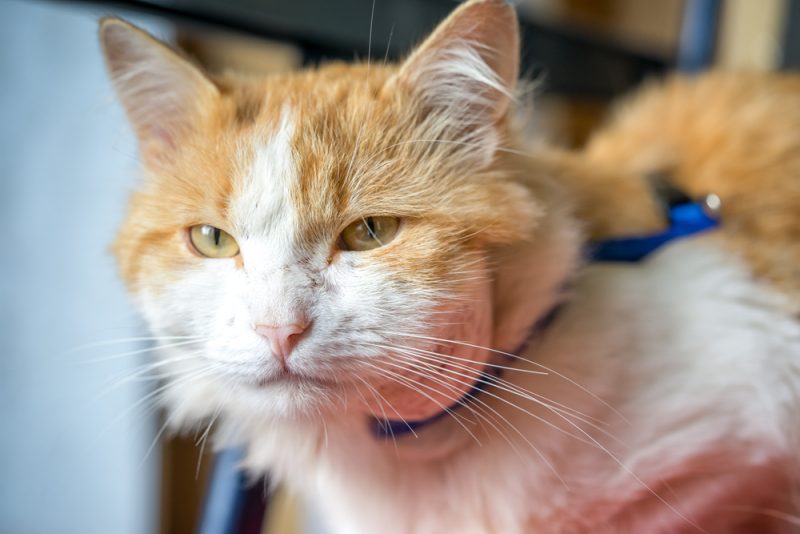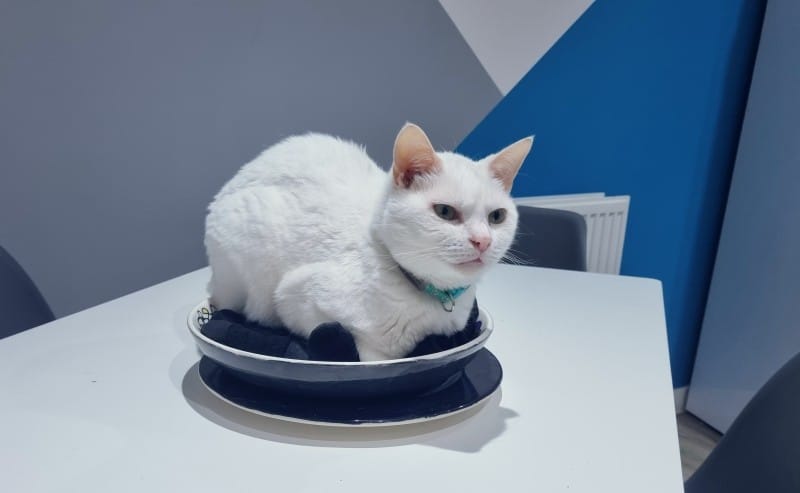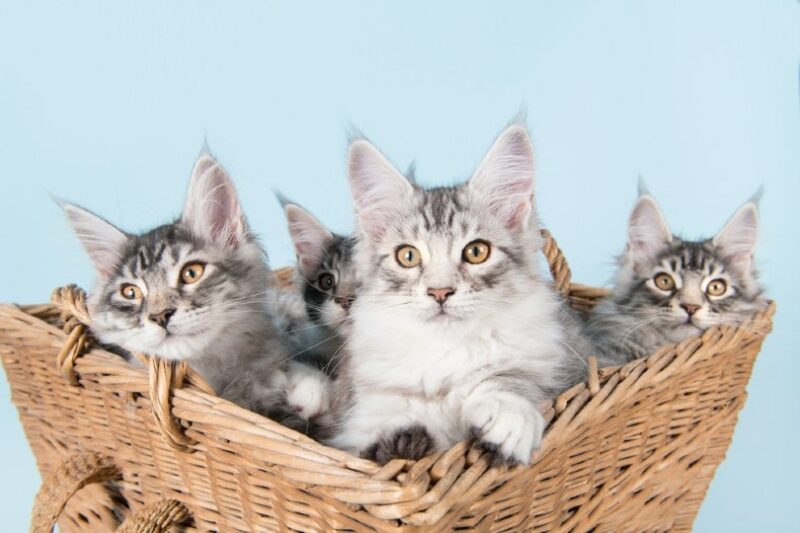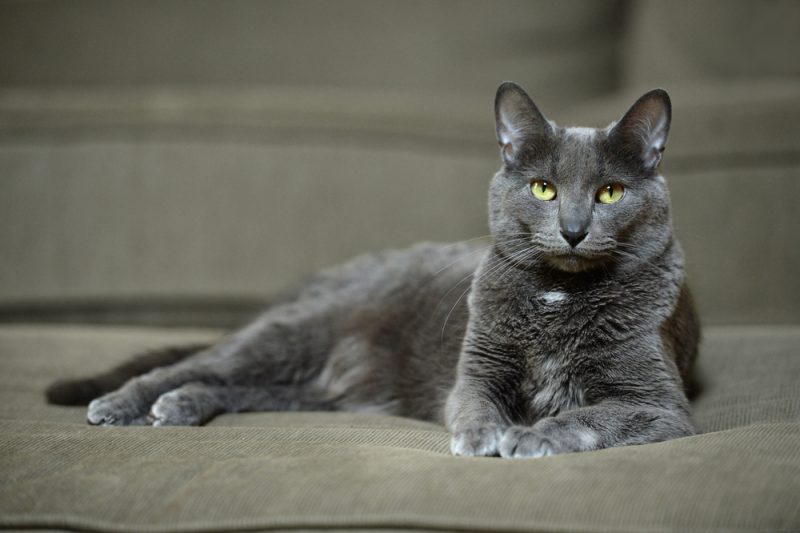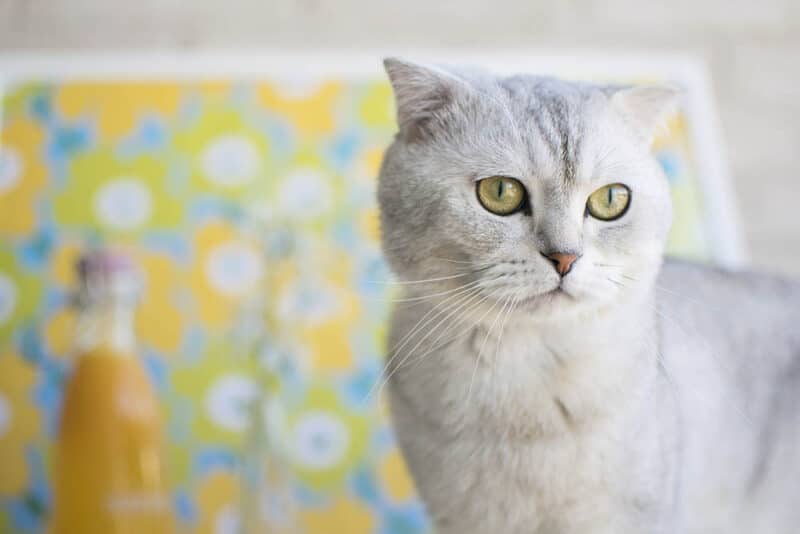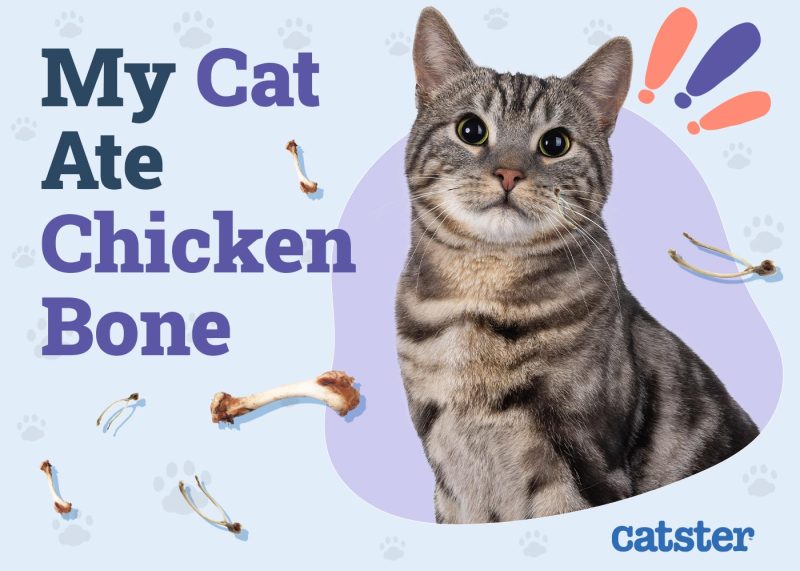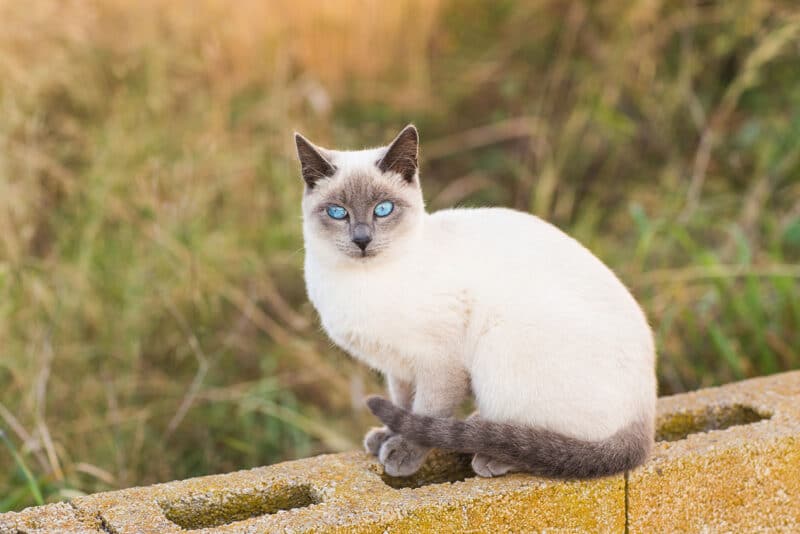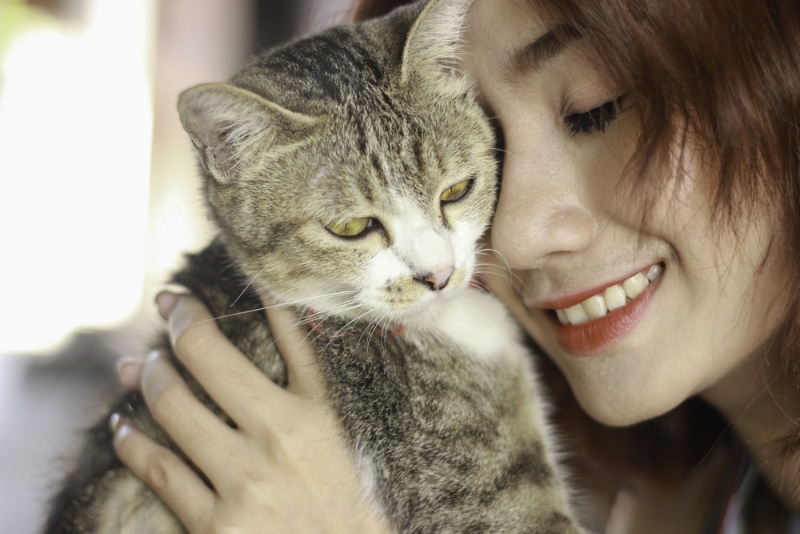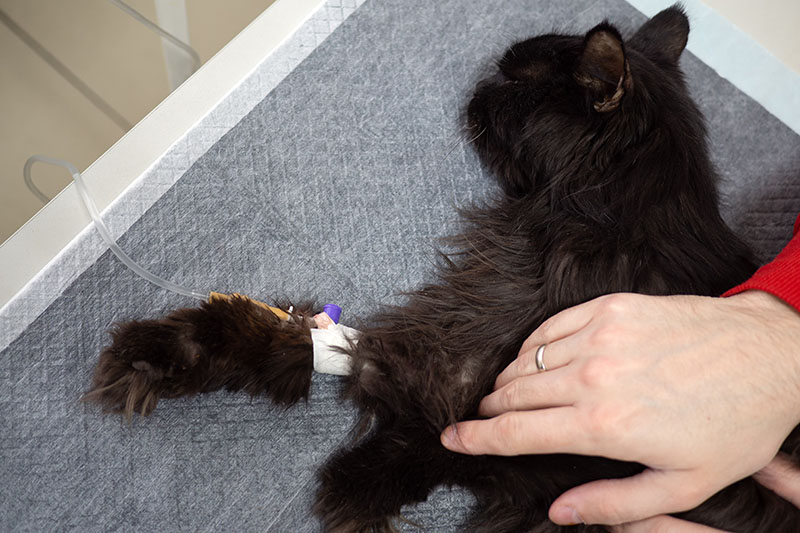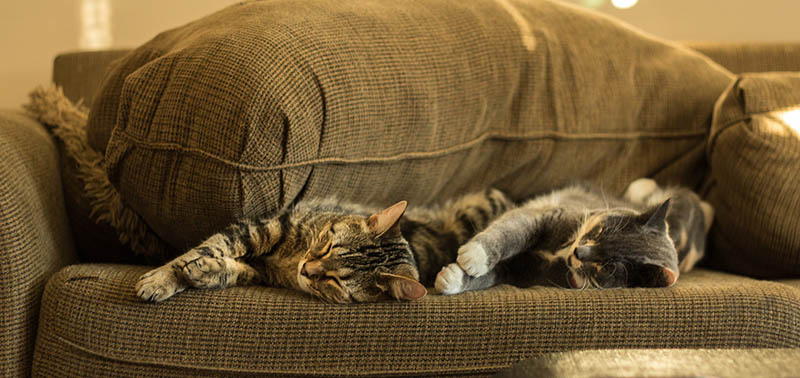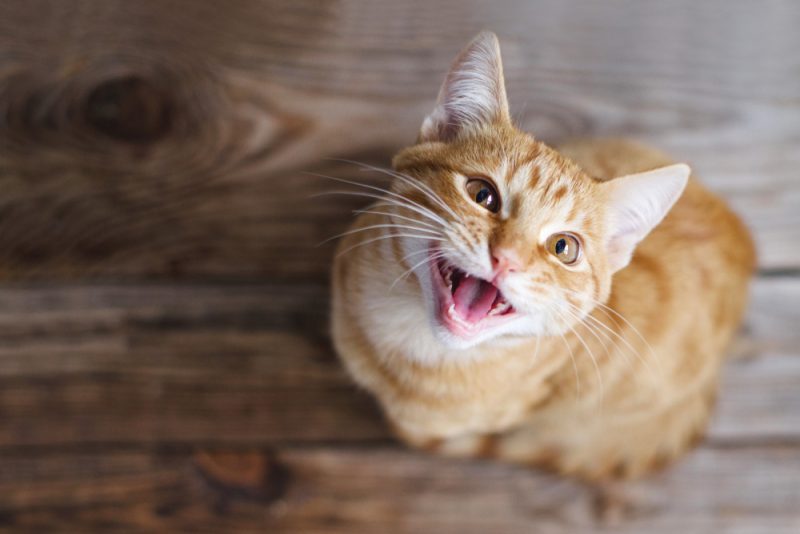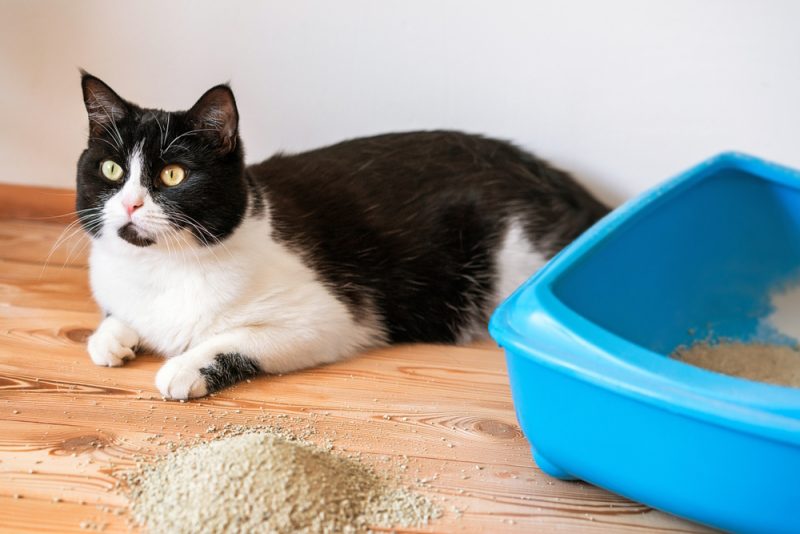In this article
View 2 More +Some people like to share certain safe foods with their cats, and most consider orange juice healthy and nutritious, so it’s only natural to wonder if it’s OK to allow your cat to have a little orange juice now and then. The short answer is no, cats should not be drinking orange juice, as all parts of citrus fruits are considered variably toxic for cats. That, however, does not mean that serious harm will come to your cat if they accidentally licked a little bit of orange juice, but larger amounts may lead to a stomach upset, and this should be avoided for the reasons we will discuss next.
Always consult with your vet when it comes to your cat’s nutrition and safe treat options for them in order to avoid offering them harmful or even toxic human food ingredients. Even safe options may not be appropriate for all cats based on their age, health, underlying medical conditions, or ongoing medication.
We hope you’ll join us while we look at why you should never serve orange juice to your cat.

Is Orange Juice Bad for Cats?

Yes, orange juice can be bad for cats for several reasons.
1. Citric Acid
Varying amounts of citric acid in orange juice can upset your pet’s stomach. It can irritate the stomach lining, causing vomiting, reduced appetite, and diarrhea.
2. Essential Oils
The essential oils in oranges, such as limonene, may present a bigger danger to your cat than the citric acid. The concentration is higher in the leaves and stems of the plant, but essential oils are also in the fruit. The amount of essential oils is much higher in commercially made concentrated products, such as skin care products, shampoos, and various scents and diffusers, than it is in oranges or orange juice.1 However, there is still a risk that even eating orange fruit may cause minor digestive issues in some cats.
A higher concentration of essential oils has the potential to lead to respiratory difficulties if inhaled, or digestive, skin, and neurological signs in some animals, depending on the concentration. The ASPCA classifies oranges and other citrus fruit as toxic to cats, and this is plenty enough reason to stay away from this fruit and its juice when it comes to felines.
It is, however, less likely that a very small sip of orange juice will have serious or detrimental effects on most cats, but due to this toxic potential and the fact that cats as obligate carnivores do not need fruit in their diet at all, you need to exercise caution.
Some of the signs of essential oil poisoning may include difficulty breathing, drooling, weakness, muscle tremors, and vomiting. If you notice any of these signs in your cat, or they have been exposed to essential oil products from your home, whether by inhalation or ingestion, contact your vet immediately and bring along a sample of any essential oil they may have come in touch with.
- You may be interested in: What Essential Oils Are Safe to Diffuse Around Cats? Vet-Reviewed Facts
3. Sugar
Orange juice is also high in sugar, and cats will not benefit from it in any way, as they do not have dietary requirements for carbs. Cats cannot taste sugar, and their diet is based on high-quality animal protein with a moderate fat content and minimal carbs.

4. Artificial Sweeteners
Some commercially prepared juices may also contain various artificial sweeteners and additives, one of which is commonly xylitol. Although the majority of reports for xylitol toxicity are based on cases in dogs, we cannot fully rule out its potential harmful effect on cats. There is just insufficient data on this currently, and the general recommendation remains to avoid xylitol in cats.
5. Psoralens
Psoralens are another potentially harmful compound found in oranges that could cause skin issues and increased sensitivity to sunlight. There is insufficient evidence at the moment to confirm or dispute the safety of psoralens for cats, but it is listed as a harmful compound by the ASPCA, making it another reason to avoid giving your cat any orange juice or other citrus fruits.
6. Vitamin C
Most of us drink orange juice to increase the amount of vitamin C in our body, which will help boost the immune system to ward off disease. However, cats produce their own vitamin C and do not need supplements unless directed by a veterinarian.

What Should I Do if My Cat Drinks Orange Juice?
Oranges, like other citrus fruits, are considered natural cat repellants. Cats have sensitive noses, and they don’t like the smell of oranges, so the chances are good that they won’t even go near an orange, much less drink enough of it to make them sick. However, if they do drink a significant amount of orange juice, or more importantly, if they come in contact with any amount of citrus or other essential oils, contact your vet for advice.
The odds are good that your pet will be fine if they only had a lick of orange juice, but some may develop drooling or digestive issues.
If you need to speak with a vet but can't get to one, head over to PangoVet. It's an online service where you can talk to a vet online and get the advice you need for your pet — all at an affordable price!


DIY Cat Repellent
Because most citrus fruits naturally repel cats, some people use it as a natural and safe cat repellent to help keep cats off furniture and reduce the number of stray cats that cut through their yard.
- 3 – 4 whole oranges
- 1 quart water
- Pour the water into a 2-quart saucepan.
- Peel the oranges and place the rinds in the water.
- Bring the water to a boil.
- Cover and simmer for 20-30 minutes.
- Allow the solution to cool
- Remove and discard the orange rinds.
- Strain the remaining fluid to remove tiny particles.
- Pour the solution into a spray bottle.
- Spray the solution where you don’t want your cats to go.
When using this solution indoors, do so sparingly, so you don’t trigger any side effects. Make sure to never spray any on your cat. Try it in an out of the way area first, and if you can smell it, dilute it with more water. If using it outside to keep away strays, you can use a stronger solution, and you will need to reapply it every few days.

Conclusion
Unfortunately, orange juice is not one of the foods we can share with our pets. If your cat drank a little while you weren’t looking, it probably won’t do any damage, but you should never offer it as a treat or a drink. Oranges and orange peels may be used for preventing your cat from going where you don’t want them to go, and it may be effective on stray cats as well.
Featured Image Credit: Bru-nO, Pixabay




